Apr 7, 2025
Peter Dutton's Backflip on Working from Home: A Closer Look
In a surprising turn of events, Peter Dutton, the Leader of the Opposition, has scrapped plans to impose restrictions on public servants working from home. This decision comes amid a tumultuous federal election campaign and raises questions about Dutton's strategy and credibility. Let's dive into the details surrounding this significant policy shift.
Table of Contents
- The Initial Proposal
- The Backflip
- Public Reaction
- Impact on Female Voters
- Addressing Economic Concerns
- Job Cuts and Public Service Efficiency
- Addressing Trust Issues
- Key Takeaways from the Campaign Trail
- What Lies Ahead?
- FAQ
The Initial Proposal
Initially, Dutton's stance on remote work was clear: he aimed to stop public servants from working from home, arguing that taxpayer resources needed to be utilized efficiently. This proposal was seen as a signature policy for Dutton, one that he believed would resonate with voters concerned about government spending.
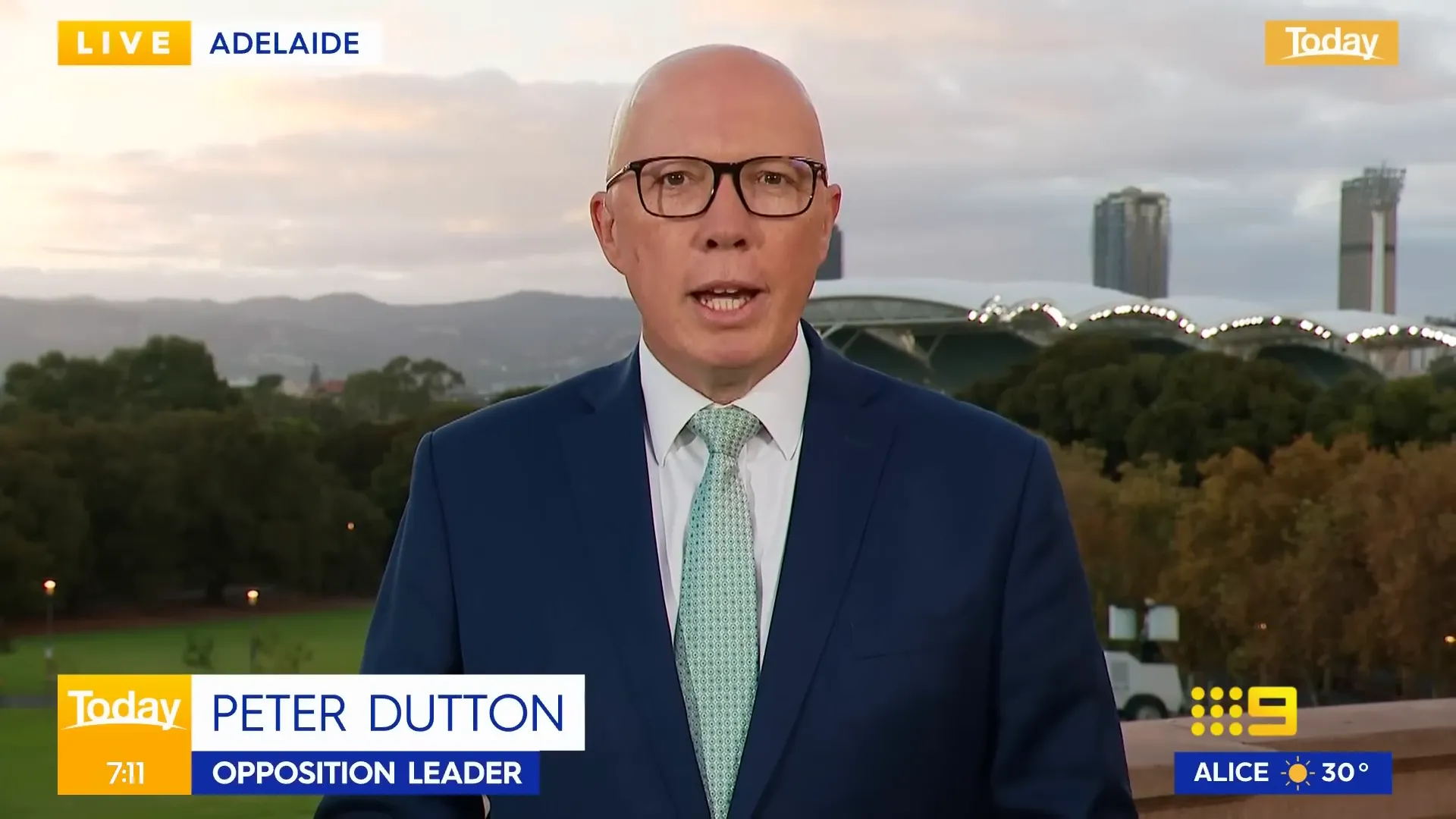
The Backflip
However, just over a week later, Dutton made a major backflip, admitting that the original policy was a mistake. In a live interview from Adelaide, he stated, "I think we've made a mistake in relation to this policy, Sarah, and I think it's important that we say that and recognize it." This admission came as a surprise, especially since the policy was a cornerstone of his campaign.
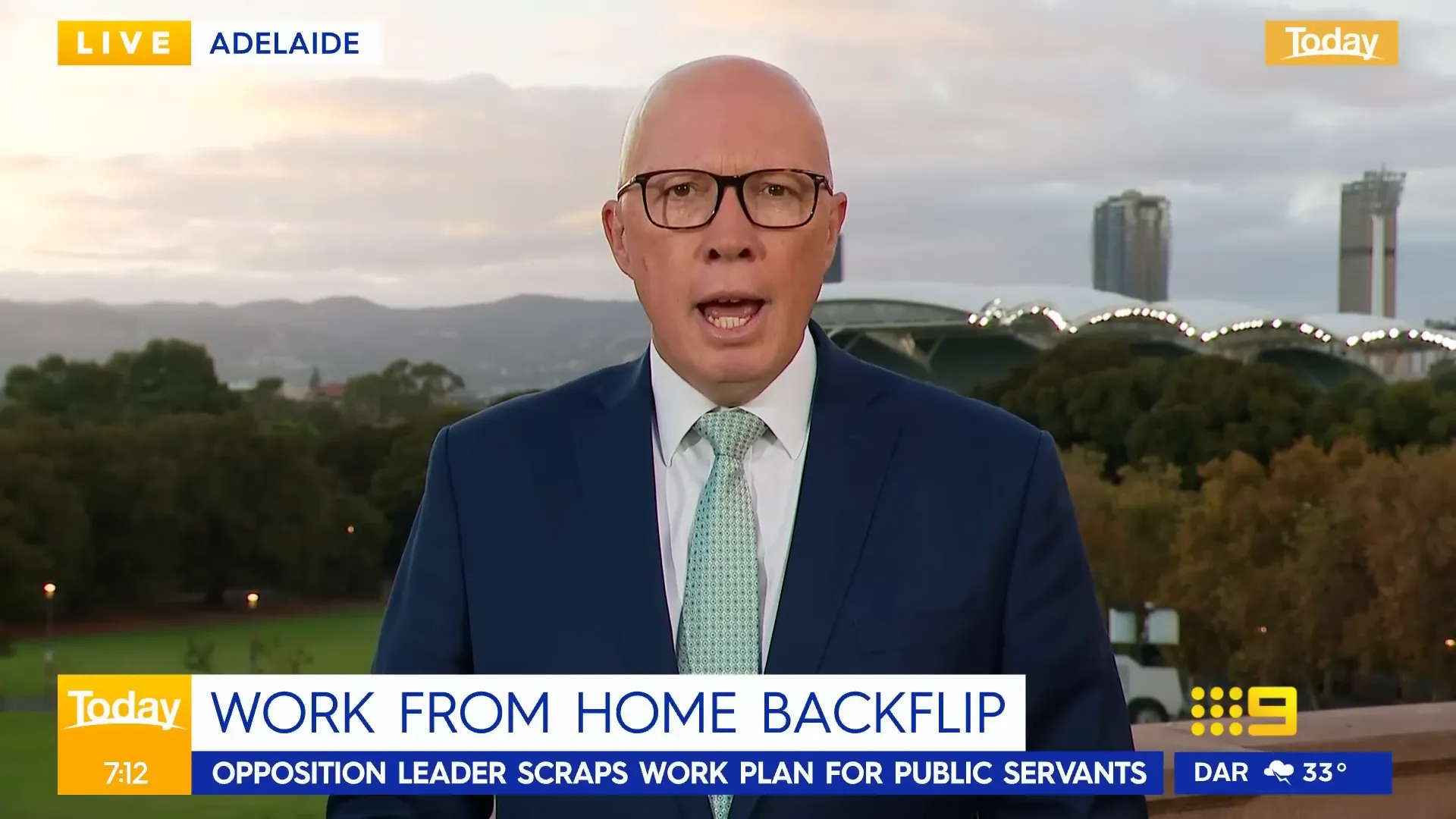
Public Reaction
The public's reaction to Dutton's sudden change of heart has been mixed. Many view it as a sign of weakness, questioning how he can be trusted to lead as Prime Minister if he can't maintain a consistent policy stance. Critics argue that this backflip undermines his credibility and raises concerns about his ability to navigate complex issues effectively.
Impact on Female Voters
Dutton's initial stance was also criticized for its potential impact on female voters. As he navigates this backlash, he must address the perception that his policies do not align with the needs and concerns of women, particularly in the workforce. The conversation has shifted to whether he can regain trust among this demographic.
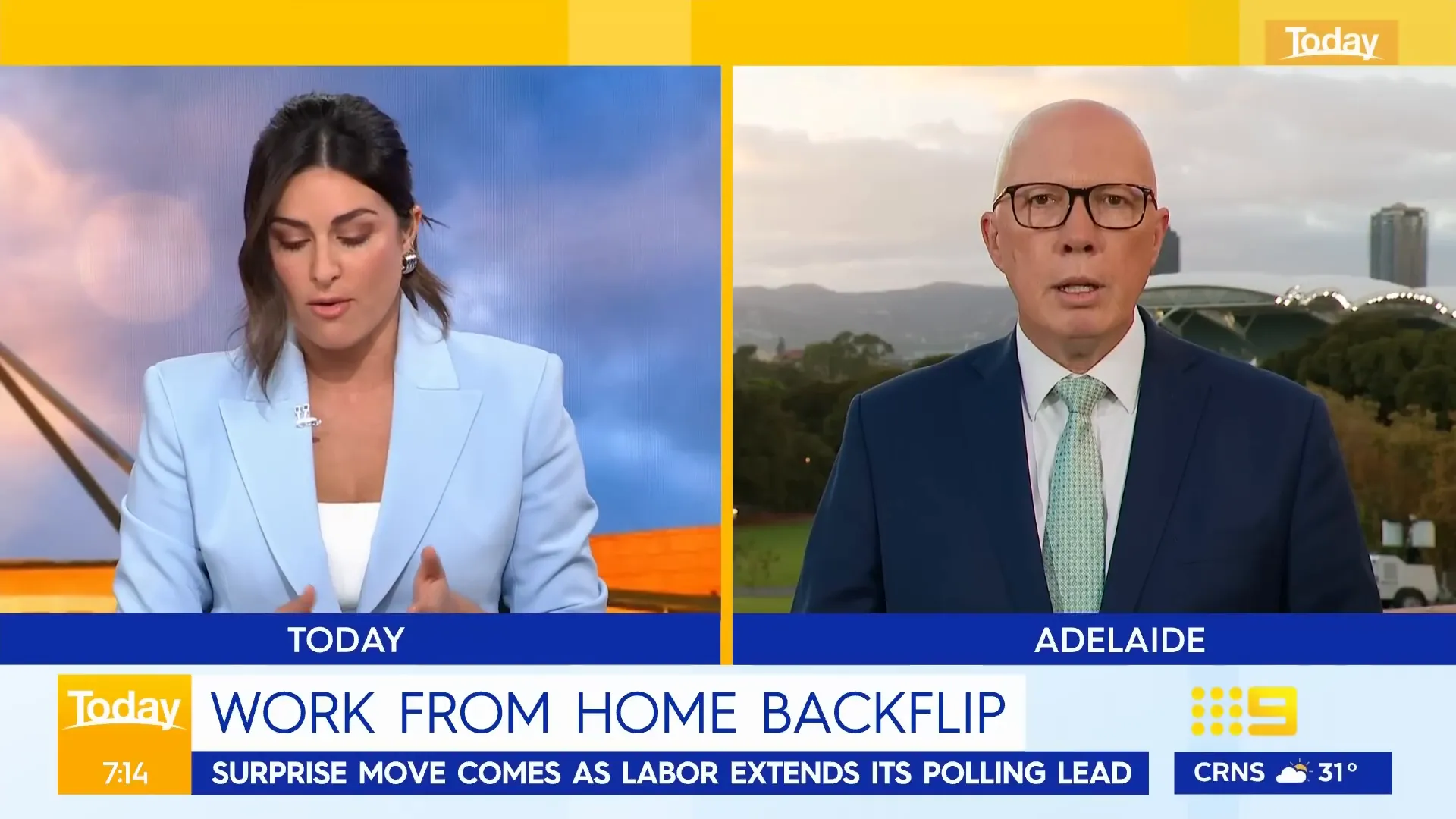
Addressing Economic Concerns
Amidst the discussions about work-from-home policies, economic issues have become prominent. Dutton pointed out the struggles faced by families, noting that "there are twenty-nine thousand small businesses that have closed over the last couple of years." He emphasized that the rising cost of living and grocery prices are at the forefront of people's minds, and he aims to address these issues with a more robust economic plan.
Job Cuts and Public Service Efficiency
Not only did Dutton walk back his work-from-home policy, but he also reversed plans to cut forty-one thousand public service jobs. Instead, he indicated that these positions would be lost through natural attrition and a hiring freeze. This raises questions about how he will fund his proposed Medicare plan without these cuts. Dutton insists that his original plan for natural attrition remains intact, despite the apparent contradictions in his messaging.
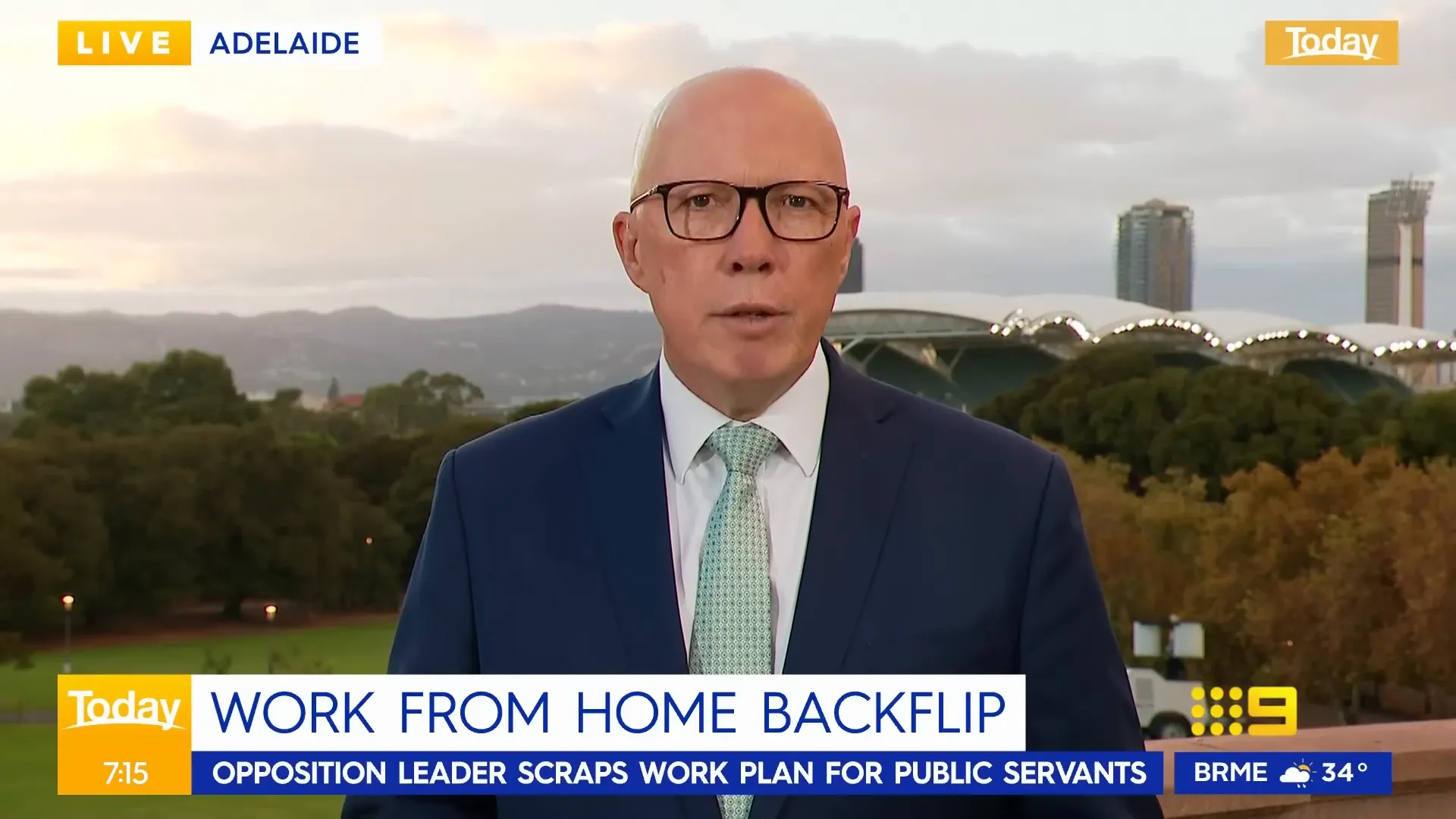
Addressing Trust Issues
Trust has become a central theme in Dutton's campaign narrative. He claims that the current Prime Minister, Anthony Albanese, has a "real problem with the truth," making it crucial for him to differentiate himself and build a reliable reputation. Dutton's approach is to listen to Australians and clarify his position, emphasizing that he is not going to be framed by the Prime Minister's attacks.
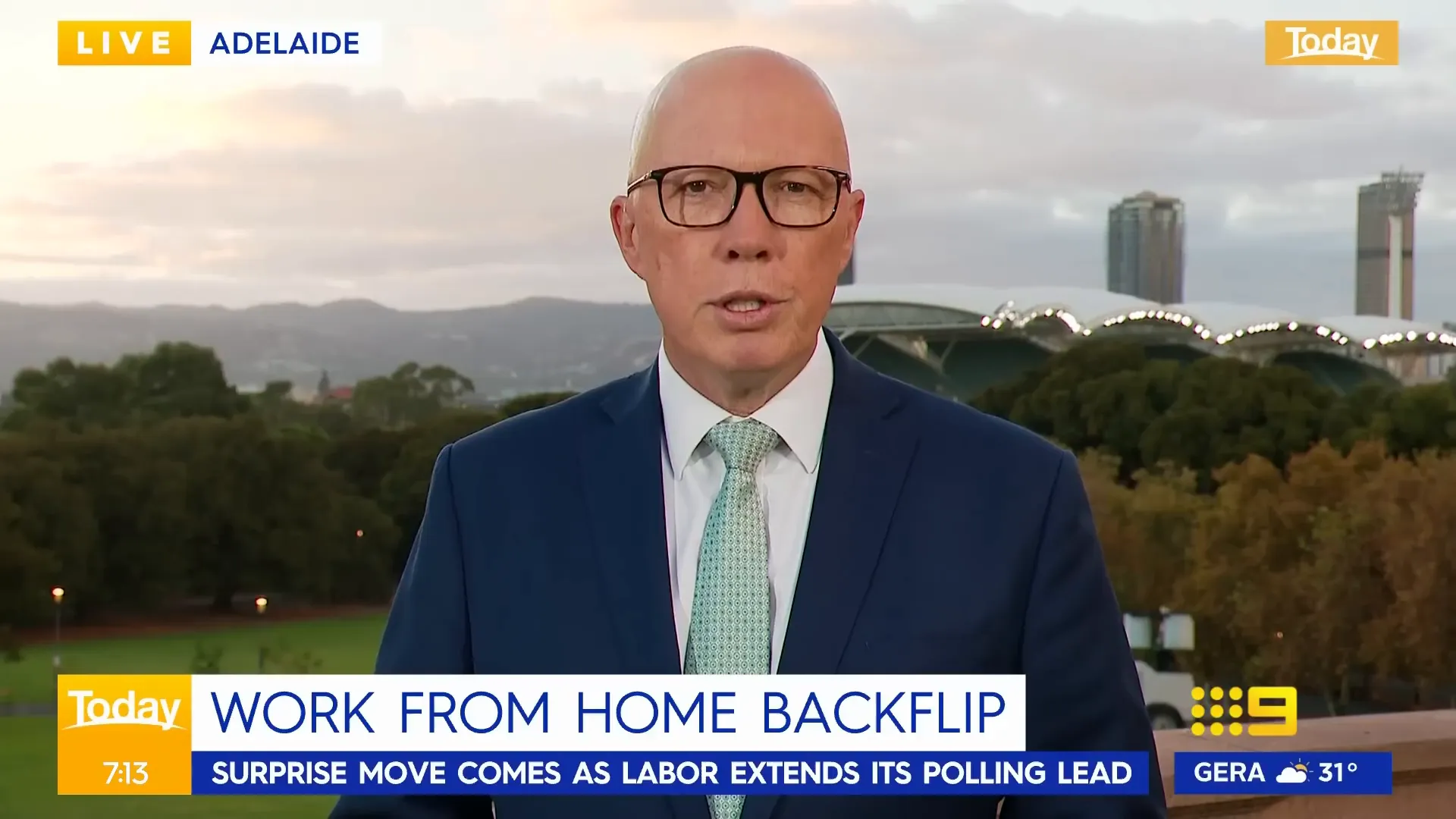
Key Takeaways from the Campaign Trail
As the election approaches, several key takeaways emerge from Dutton's recent interviews and public appearances:
- Policy Consistency: Dutton's backflip raises questions about his policy consistency and reliability.
- Economic Focus: Addressing the rising cost of living and supporting struggling families will be crucial in his campaign.
- Engagement with Women: Regaining trust among female voters will be vital for Dutton's success.
What Lies Ahead?
As the election day approaches, the stakes are high. Dutton's ability to navigate these challenges effectively and present a clear, consistent vision will determine his party's future. Voters are looking for leaders who can deliver on promises and address their concerns, particularly in uncertain economic times.
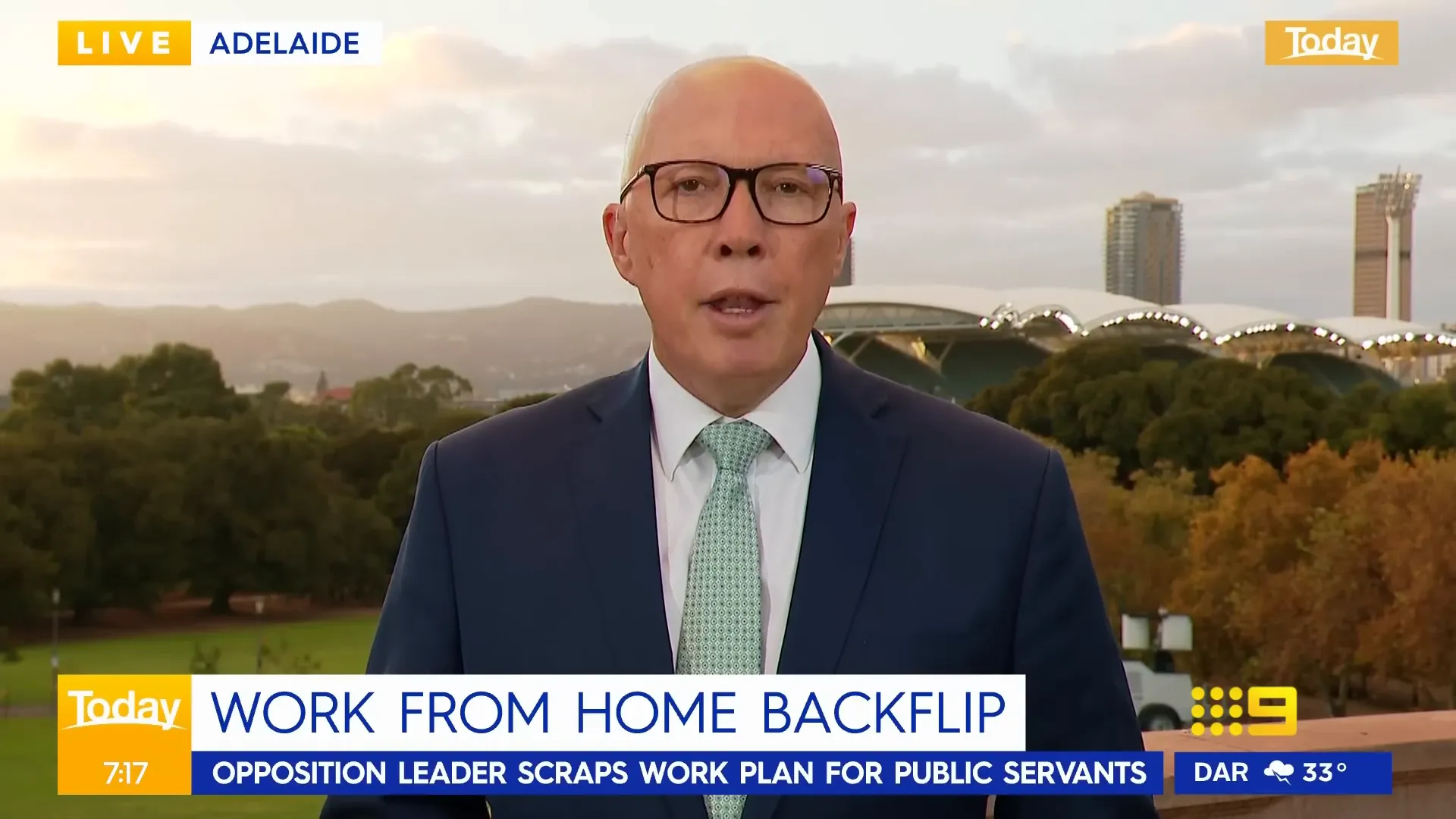
FAQ
What was Peter Dutton's original work-from-home policy?
Dutton initially proposed to stop public servants from working from home, arguing it was essential for efficient use of taxpayer money.
Why did Dutton change his stance?
After public backlash and criticism, Dutton admitted that the policy was a mistake and expressed the need to listen to Australians.
How does this impact female voters?
The initial policy was seen as potentially detrimental to female voters, leading to concerns about Dutton's ability to connect with this demographic.
What are Dutton's plans for the economy?
Dutton aims to address rising costs of living and support small businesses as part of his economic strategy moving forward.
How will Dutton fund his proposed Medicare plan?
Dutton has claimed that job losses through natural attrition and hiring freezes will not affect the funding for his Medicare plan, although this remains a point of contention.
For more insights into current events and policies, visit Breslin Media's Politics & Power section or check out our coverage on Breaking News.